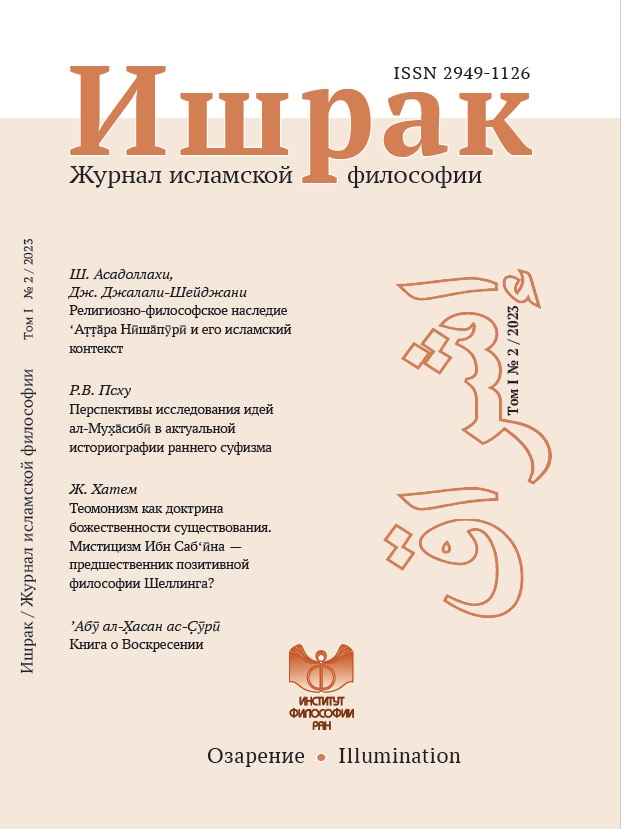Prospects for the Study of the Ideas of al-Muḥāsibī in the Current Historiography of Early Sufism.
Keywords:
Early Sufism, Transcendental Hermeneutics, Philosophy of Science, al-Ḥārith al-Muḥāsibī, Oberhammer, Methodology, Islam, Mysticism, Russian Orientalistics, TranscendenceAbstract
In this article Early Sufism is understood as the stage of the emergence and formation of Islamic mysticism in general, covering sayings and texts in Arabic, created in the period from al-Ḥ asan al-Baṣrī (642–728) and ending with al-Niffarī (d. 965). It is obvious that Early Sufism Studies is an extremely narrow separate area of Sufi Studies in general, the research literature on which is not as extensive as on Sufism as a whole or its individual later periods. It is also obvious that any attempt to apply the same strict analytic approaches and methods to the study of Early Sufism as to the later periods of Islamic mysticism can lead to the elimination of that charming atmosphere of piety that accompanied the passionate striving for God by the early mystics of Islam and which permeates their lives and texts. Not much has been written, but it would be enough to separate these studies from works on other periods of Sufism development. In the article, the main methods for studying the ideas of the Early Sufism and its representatives are described in a historiographical way, and the analysis of research methods is associated with the application of the method of transcendental hermeneutics of Austrian orientalist G. Oberhammer to the material of the al-Ḥārith al-Muḥāsibī’s early Sufi teachings. One of the results of the study can be considered a summing up of the historiography of the Early Sufism, as well as the proposal of a new method for its study. It could be argued, Oberhammer’s methodology which provides apt explanations of the Early Sufism gives ground for further deepening and expanding information about facts and realia. The analysis of the currently existing research genres is also arguing in favor of Oberhammer’s methodology.


